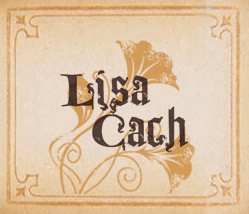Reviews! They’re a blessing and a curse. The good reviews motivate me to keep writing, as do letters from fans. The bad reviews… are more challenging.
I’ve read lots of good reviews of my books, and some bad reviews, trying each time to find a key to what I do well, and what I need to work on. The answers are rarely consistent, and seem to say more about what the reader was looking for in a book, than about the ultimate value of what I offered.
So here’s my advice on dealing with reviews of your book:
A book will speak to a reader, or it won’t. The flaws will be noticeable to a reader, or not. There is no definitive ‘good’ or ‘bad’ identity for a book. If someone enjoyed your book, that is truth enough.
Some people will love your book and stay up all night to finish it, and some people will throw it in the recycling bin halfway through. Naturally, it sometimes seems that the latter folk are the ones most eager to post reviews online.
Try, try, try to avoid reading reviews online of your work. It’s like listening to people talk about you behind your back. You’ll hear some nice things, but ten nice things won’t make up for the one negative thing you stumble across. That’s human nature: the negative makes a greater impact on us than the positive.
Anyway, I’d rather have a book that sold well than one that was reviewed well.
The only criticism it makes sense to listen to (if you value your sanity!) is your editor’s. An editor’s criticism may not always be exactly on the mark, but they are responding to something that is not right in your book. If you don’t agree with an editor’s criticism, try anyway to figure out where the underlying problem might be.
Over time, thanks to the feedback of readers and editors, you might finally begin to get an idea of where your strengths and weaknesses are as a writer in your genre. A weakness in one genre might end up being of no matter in another. I don’t think Tom Clancy ever worried about making sure his female characters were feeling things deeply enough. Stephenie Meyer likely doesn’t sweat about giving her books the technological depth and accuracy of a Clancy novel. Maybe it will turn out that while you thought you were meant to be a paranormal romance writer, your strengths and weaknesses mean you’re better suited to being a mystery writer. Or you thought you wanted to write horror because you love monsters, but it turns out middle grade books are more your thing.
Which brings me to a general observation about us as we try, try, try to reach our goals. Sometimes, we keep failing because the target we’re aiming for is not a good fit for us. We want it so badly, though, that we take the ‘No’ to mean, ‘Try again! If you try hard enough, you’ll get there!’ And maybe you will. But maybe… Maybe there’s another target, off to the left there a wee little bit, that you’ve been too blind to see. It’s very similar to your present target, but also a little different, and it happens to be a very good fit for you. If only you could shift your gaze a little and see it, you would find yourself hitting the bullseye with little effort.
If you find yourself getting a consistent criticism of your writing in one genre, look long and hard at that criticism and ask yourself if — rather than being a comment on your ability as a writer in general — it is instead a comment on your suitability for your genre. Look at your ‘flaw’ and ask yourself, “For which readers is this ‘flaw’ actually a strength?”


